|
|
|
|
Hawaiian Tall Coconut Tree LIVE Seed Cocos nucifera
Price: $24.99

|
Hawaiian Tall Coconut_seed
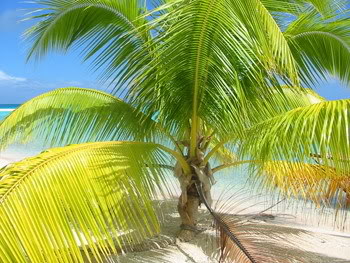
Hawaiian Tall
Coconut
Cocos nucifera
Coconut
(Cocos nucifera)
|
 |
|

Live Coconut Seed |
You are
bidding on one (1) live viable
Hawaiian
Tall Coconut
|
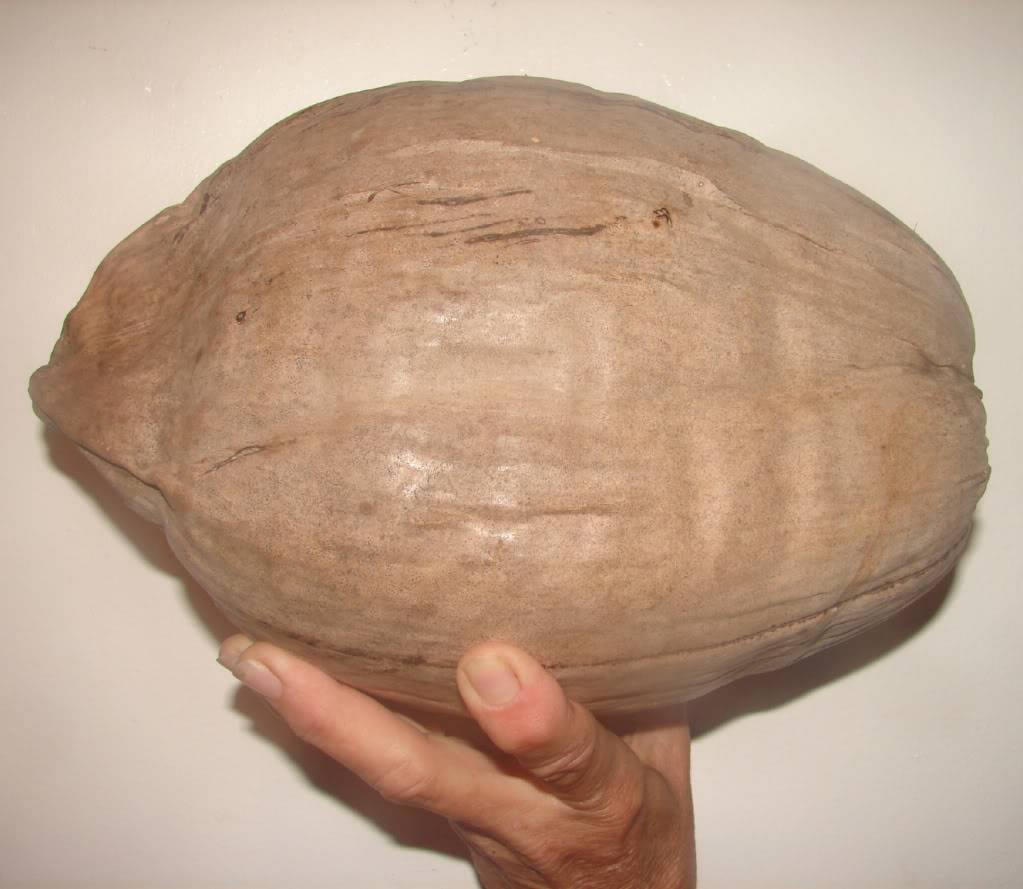 |
Fresh
Live Seed
Ready to germinate.
Ready to be put in a 3 gallon container.
Please be aware Hawaiian coconuts are
lethal yellowing free unlike the Caribbean coconut palms that
have been devastated by this palm disease. Still rampant in many
islands of the Caribbean, including Puerto Rico.
Many other palms like Manilas, can
contract lethal yellowing as well. Please don't help spread this
terrible palm disease.
|
|
photo of multiple
item |
|
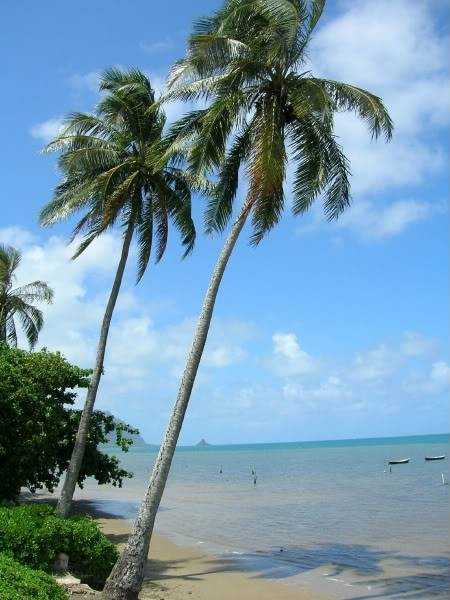
Most of us in the U.S. are familiar with the coconut
palm from resorts in Hawaii, Florida and the Caribbean. Since falling coconuts can pose a
serious (sometimes fatal!) health hazard to guests, they are often removed by resort
managers hoping to avoid injuries and lawsuits. Honolulu regularly has tall cononut trees
trimmed due to a lawsuit.
This beautiful palm embodies the romance of the
tropics and is also of great economic value. There are many varieties, from dwarfs to the
familiar tall growing types that reach 50-80 ft. All have graceful gray trunks topped by a
crown of pinnately compound yellow-green leaves. Each leaf is 12-15 ft long with
many leaflets.
This is an extremely important plant, Coconut Palms were introduced throughout the Tropics and the Hawaiian islands
by ancient Polynesians. Coconut fibers were used to make twine by Ancient Hawaiians. The
Hawaiians evidently grew two types of coconut. One was best for making rope and the other
was best for consumption.
The scientific name for coconut is Cocos nucifera.
Early Spanish explorers called it coco, which means "monkey face" because the
three indentations (eyes).
The Coconut Palm (Cocos nucifera) is a member of the
Family Arecaceae. Coconut trees are palms that grow up to 90 feet high grow throughout the
tropics. , they Their trunks are ringed with scars where old leaves have fallen. The top
of the trunk is crowned with a rosette of leaves. |
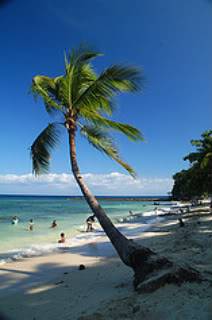
Leaves -
feather-shaped and split into lots of leaflets. Long leaves can grow up to 20 feet long
and can have 250 leaflets. They are used for matting, weaving and thatching. Flowers -
male and female flowers grow on the same plants on flowering branches. Flowers are pale
yellow and are about 1 cm long. The base of flowering branches are tapped for sap.
Coconut fruits are
oval and covered with a smooth skin which can be bright green, brilliant orange or ivory
colored. Underneath this skin is a thick fibrous layer which is used for coir. The next
layer is the shell of the seed with the three characteristic ‘eyes’. The shell
may be used to make charcoal and eating utensils. The inside of the shell is lined with a
white, edible layer called the meat. This is also made into chemical, industrial and
medicinal products. The fluid inside the seed cavity is known as coconut water (not milk).
When seeds germinate, the new shoot sprouts from one of the eyes. |
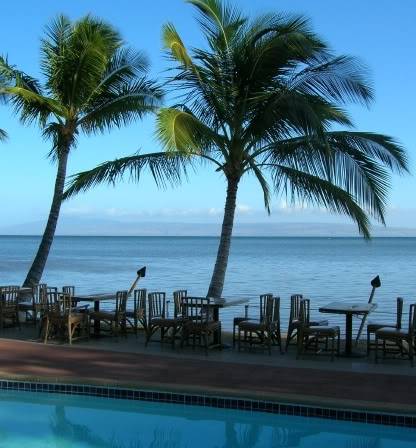
The coconut is the only species in the genus Cocos. In India it has been called the
‘tree of heaven’ or ‘kalpavriksha‘. Coconut palms are known as the
‘Tree of Life’ because of their huge variety of uses.
The large spirally
arranged leaves are up to 12 feet or more in length, and are pinnately divided into
numerous strap shaped segments. The separate male and female flowers are in axillary
panicles. The male flowers have 3 yellow petals and 2 stamens. The ovoid coconut is up to
a foot long, and is composed of a thick fibrous husk, a hard shell, and a single seed with
the copra lining the interior, and water (coconut milk) filling the cavity when it is
young.
Cultivars
Coconut palms have two natural subgroups
simply referred to as "Tall" and "Dwarf". Most commercial plantings
use high yielding, longer lived Tall cultivars, and each region has its own selections,
e.g., ‘Ceylon Tall', Indian Tall', ‘Jamaica Tall' (syn. ‘Atlantic Tall'),
‘Panama Tall' (syn. ‘Pacific Tall'). The Tall cultivar group is sometimes given
the name Cocos nucifera var. typica, and the dwarf cultivar group C. nucifera var. nana.
Samoan Coconut Trees are in this dwarf group. Dwarf cultivars, particularly the popular
ornamentals, are largely self-pollinating as opposed to the Tall cultivars of commerce
which rarely pollinate themselves. |
|
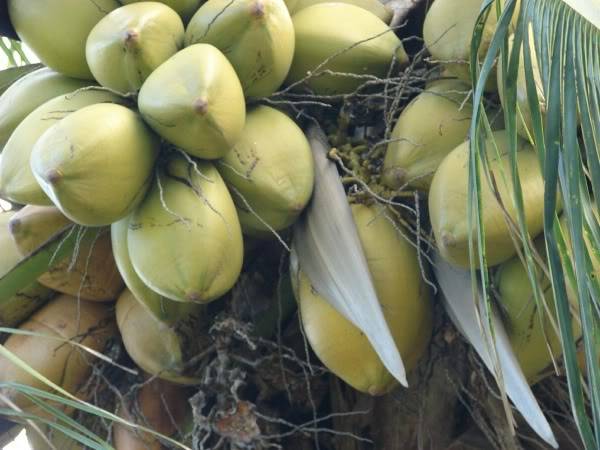
Fruit
Coconuts are large, dry
drupes, ovoid in shape, up to 15" long and 12" wide. The exocarp or skin is
green, yellow, or bronze-gold, turning to brown, depending on cultivar and maturity. The
mesocarp is fibrous and dry at maturity; the product coir is derived from this layer. The
endocarp is the hard shell enclosing the seed. Seeds are the largest of any plant, and
have a thin brown seed coat. Seeds are filled with endosperm, which is solid and adherent
to the seed coat, and also in liquid form, called "milk". Copra is derived from
the solid endosperm.
|
Location
Coconut is a pan-tropical species usually found in humid
coastal areas between latitudes 26 degrees north and south. The origin of this plant is
uncertain, but many experts believe it's from the west Pacific and Indian Ocean islands.
As it is not a palm for dry climates, it is typically encountered in the continental U.S.
only in South Florida, and the extreme southern tip of Texas. Coconut palms are also
occasionally seen in nominally frost-free micro-climates in Zone 9.
Soils and Climate
Soils - adaptable to many soil types, and can be grown inland
provided adequate drainage and pH between 5.0 and 8.0.
Climate - below 1000 ft elevation, frost-free subtropical
areas and climates with extended dry seasons provided irrigation, but grow best in areas
with mean temperatures of 70-80°F
Water needs - 40-60" of water per year, and perform better in high
humidity, supremely tolerant of hurricane force winds and driving rain, and rarely
uprooted.
Tolerates salt spray better than most crops, and can
tolerate brief flooding associated with tropical storms.
Light: Bright sunny locations.
Moisture: Can withstand drought, but likes moisture if well drained.
Hardiness: Zone 10 - 11; for virtually frostfree areas
only.
Coconut palms can
tolerate frost and freezing of only briefest duration - even then leaves will discolor and
the plant is left susceptible to fungus diseases.
|
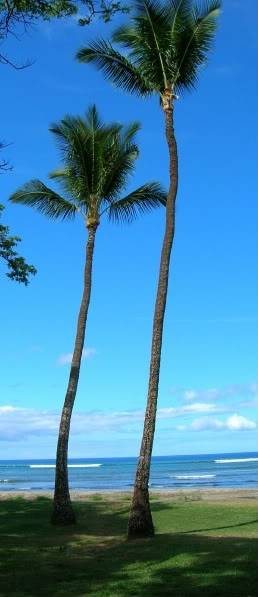 |
| Scientific
Name: Cocos nucifera Pronunciation/Meaning:
Arecaceae (ar-ek-AY-see-ay) - The Palm family
(formerly Palmae).
Cocos (KOH-kohs) - From the Portugese word for mask, possibly referring to the depressions
on fruit that resemble a monkey’s face.
nucifera (noo-SIFF-er-uh) - Nut-bearing.
|
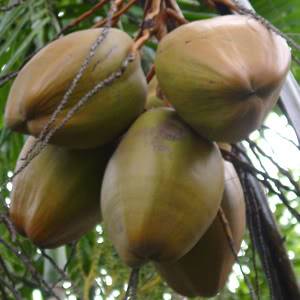
Hawaiian Tall Coconut makes a
beautiful accent on the lawn and provides nice filtered shade for the patio.
The Hawaiian Tall Coconut is very salt tolerant and is at its most
sensational when planted beachside where the seabreeze can rustle its huge feather leaves.
Nothing sets a tropical tone like this
Hawaiian Tall Coconut! |
|
 |

 Polynesian Produce Stand
Polynesian Produce Stand

|
|
All good things take time, so
I grow my plants and rare palms in  my
ebay store. my
ebay store.
Much more to
check out or just get a little education on in my store.

|
|
|

 Shipping
Shipping

We ship via USPS Mondays-Wednesday with Delivery
confirmation.
All live plants are Inspected By USDA Plant Inspectors before
they are shipped to insure you get healthy pest free plants and seeds.
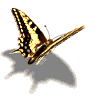 All live plants are shipped bare-root wrapped in moist
sphagnum moss to ensure the plant’s healthy transit to you. All live plants are shipped bare-root wrapped in moist
sphagnum moss to ensure the plant’s healthy transit to you.

ATTENTION INTERNATIONAL BIDDERS!
We can ship live plants to the US only. Only Domestic Shipping and Handling
includes USDA Certification.
We ship Seeds Internationally.
All International shipments are at Buyer's
Risk. Please spend no more more than you can lose!
Proper Permits and Documents are the
BUYER's responsibility.
Please request any documents prior to shipping.
For foreign customers, please check your laws concerning permitting and customs,
additional shipping and handling costs may apply.
The additional charge for any Phytosanitary Certificate is not included in this offer.
INTERNATIONAL SHIPPING ON LIVE PLANTS is available only under these conditions!
All international orders
are shipped at the
BUYER's RISK
(shipped with or without
documents) and no refunds or replacements are offered for Dead On
Arrival, loss, confiscation, Customs Seizure, unanticipated charges,
etc.
 |

 Payment
Payment

We
accept online payments only through PayPal, Cash payments are only acceptable for
in-person payments and cash-on-delivery (COD). Cash payment can not be sent through the
mail.
Please only one Paypal payment. SO THE COMBINED SHIPPING RULE WILL CAN
BE USED. Multiple paypal payments are NOT eligible for
discounts.
We will ship once a week - ON or BEFORE WEDNESDAYS, because
of the special stamps needed to ship plants and cuttings to you. This can only be
done at the Dept. of Agriculture. If payments are not met before that MONDAY, your
items will be shipped the following week and lose the combined discount opportunity.
Non-paying bidders may receive negative feedback and will be reported as an unpaid item to
eBay.

COMBINED
SHIPPING POLICY
INTERNATIONAL
SHIPPING is not included in this offer.
See
INTERNATIONAL SHIPPING ON LIVE PLANTS
We will combine shipping for auctions won on the same week paid with same paypal payment.
This policy is good for all items bought and paid for in the week ending MONDAY.
Payment must be received
within 7 days of the auction ending.
Combined
Discounts Won Auctions
For 2-3 winning auctions, the combined discount is 10% of the total Shipping and Handling
charges. For 4-7 winning auctions, the combined discount is 20% of the total Shipping and
Handling charges. For 7+ winning auctions, the combined discount is 30% of the total
Shipping and Handling charges.

As each order is packed and prepared separately you will pay the quoted S/H charges
individually per item. If you buy the same species in that item it does calculate out the
discount (i.e.: additional item $3.61). My stores' combined shipping is built in for same
items rather than a varied selection. Includes postage, USDA certification and inspection,
proper packing and delivery to Airport for prompt delivery. I can’t really change any
of these. If you want one of this and one of that, it gets hard to discount much as each
different species requires it's own prep & packing, then at USDA each has to be
unwrapped and inspected then repacked. USDA requires me to clean and prepare every last
piece before we drive them to the Inspection Station on the other side of the island. It
takes my wife and I, a day to pack items and get ready to ship. The whole next day we
drive around the island and get inspected (2-3 hours), then drive to the Airport Post
Office to drop off. It takes the same work with the same type item if you can understand.

|
 |
|

my
dog Taz will fetch your email to me
If you are dissatisfied
with the item, please contact me
before leaving a
negative or neutral comment.
I want you to be
satisfied.
Mahalo iâ `oe no ke kipa
`ana mai. E kipa mai hou!
Mahalo & Aloha!! |
Rare Palm Seeds

Fresh
Highest Quality
Seller warrants seed to be of the variety and quantity advertised.
Safe delivery is guaranteed and seeds lost or damaged during shipment will be replaced at
seller's expense. Claims must be made within 7 days of shipment. All other replacements,
refunds, returns and exchanges will be made at the sole discretion of the seller.
Seed is a live product which depends on many important related grower skills such
as proper planting time, seed depth, type of soil, irrigation, proper use of fertilizers,
weed controls, fungicides, insecticides, disease free soil, and reasonable weather
conditions during the growing period. Germination is affected by such factors as
temperature, moisture content, light intensity and contamination of planting media. These
factors are totally out of the seller's control and are the buyer's responsibility and
risk. Consequentially, the seller cannot unconditionally guarantee seed to perform
properly regardless of conditions or the buyer's methods or mistakes. |
 |
|
Destination: United States |
|---|
|
| STANDARD | Standard | $0.00 | $0.00 | | Destination: Worldwide |
|---|
|
| STANDARD | Standard | $15.61 | $12.61 | |
|
Type | Instructions to Buyer |
|---|
| Paypal | null |
|

|
|